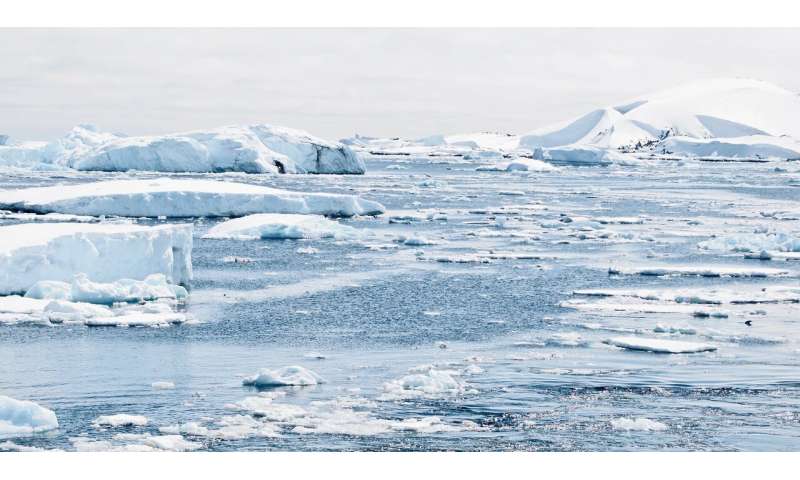Best of Last Week: Ice caps disappear, COVID-19 in the middle ear, and antioxidants increasing risk of cancer

It was a good week for Earth science as a team of researchers with the National Snow and Ice Data Center found that Canadian ice caps disappeared, confirming a 2017 scientific prediction—the St. Patrick Bay ice caps on the Hazen Plateau on northeastern Ellesmere Island in Nunavut, Canada, are yet another sign of global warming. And a team at MIT found that a plunge in incoming sunlight may have triggered "Snowball Earths"—millions of years ago. Also, a team at the University of Houston found evidence in Texas cave sediment that upended a meteorite explanation for global cooling approximately 13,000 years ago. They suggest it was instead due to volcanic activity.
In technology news, a team at Carnegie Mellon University announced that they had developed a new programming language and tool that ensures code will compute as intended as a way to address difficulties with concurrent programming. And an international team of researchers conducted a massive machine learning study that led to software that predicts satisfaction in romantic relationships. Also, a collaboration between researchers at Texas A&M University, the University of Texas at Austin, the University of Science and Technology in China, and the MIT-IBM Watson AI Lab introduced a new neural network attack that involves adding 3-D adversarial logos to images with the goal of tricking deep neural networks used for object detection. And a combined team of researchers from MIT and Microsoft developed an algorithm that can find hidden connections between paintings at the Metropolitan Museum of Art.
In other news, a team at Johns Hopkins Medicine confirmed that SARS-CoV-2 can colonize the middle ear and mastoid region of the head behind the ear, posing a potential risk to otolaryngologists. Also, a team at Arizona State University conducted a satellite survey that showed California's sinking coastal hotspots, which are most at risk as ocean levels rise.
And finally, if you are like millions of other people trying to take measures to reduce your risk of getting cancer, you may want to take note of a study conducted by a team at Hebrew University of Jerusalem—they found that antioxidant-rich foods like black tea, chocolate, and berries may increase the risk for certain cancers.
© 2020 Science X Network